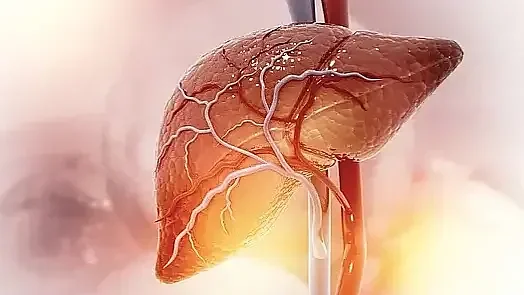Does Fatty Liver Go Away?

Understanding the Journey to Liver Health
Fatty liver disease is like an unwelcome guest that sneaks into your body quietly, often without any symptoms, until it decides to make its presence known in ways that can drastically affect your health. You might be wondering, does fatty liver go away, and if so, how can you take control of your liver health to reclaim your life? The answer is both hopeful and realistic: with the right approach, fatty liver disease can be managed, reversed, and prevented. However, this requires a dedicated commitment to lifestyle changes and, in some cases, medical interventions. Let's explore the dynamics of fatty liver disease, the pathways to recovery, and what you can do today to start healing.
Fatty Liver Disease: What Are We Dealing With?
Fatty liver disease, known medically as hepatic steatosis, occurs when fat accumulates in the liver cells. This condition is divided into two main types: alcoholic fatty liver disease (AFLD), caused by excessive alcohol consumption, and non-alcoholic fatty liver disease (NAFLD), which occurs in individuals who drink little to no alcohol. NAFLD is often linked to obesity, type 2 diabetes, insulin resistance, high cholesterol, and metabolic syndrome. In fact, NAFLD affects about one-quarter of the global population, making it a significant public health concern.
When we speak about fatty liver disease, we're often referring to NAFLD, a silent condition that can quietly progress to non-alcoholic steatohepatitis (NASH), characterized by inflammation and liver cell damage. Over time, NASH can lead to fibrosis (scarring of the liver), cirrhosis, and even liver cancer. Given these potential outcomes, the question, does fatty liver go away, becomes critically important.
Does Fatty Liver Go Away? The Answer Lies in Your Hands
The good news is that fatty liver disease is not an irreversible condition, especially in its early stages. The liver is a remarkable organ, capable of regenerating and repairing itself when given the right conditions. For many individuals, NAFLD can be reversed with lifestyle modifications that target the underlying causes of fat accumulation. Here’s how you can take proactive steps to reverse fatty liver disease:
1. Adopt a Liver-Friendly Diet
The foundation of reversing fatty liver disease is a diet that supports liver health. This means reducing the intake of saturated fats, refined sugars, and processed foods, which can contribute to fat buildup in the liver. Instead, focus on whole foods rich in nutrients. Incorporate plenty of vegetables, fruits, whole grains, lean proteins, and healthy fats like those found in avocados, nuts, and olive oil.
The Mediterranean diet, in particular, has been shown to have beneficial effects on liver health. This diet emphasizes fish, fresh produce, whole grains, and healthy fats, which can help reduce liver fat and inflammation. Remember, what you eat directly impacts your liver's ability to heal, so choose foods that nourish and support liver function.

2. Get Moving: Exercise as Medicine
Physical activity is a powerful tool in the fight against fatty liver disease. Regular exercise helps burn triglycerides and reduce liver fat. Aim for at least 150 minutes of moderate-intensity exercise per week, such as brisk walking, swimming, or cycling. Resistance training can also be beneficial as it helps improve insulin sensitivity and promotes fat loss.
Exercise not only aids in weight management but also reduces inflammation and oxidative stress, both of which are crucial in reversing fatty liver disease. So lace up your sneakers, find an activity you enjoy, and make it a part of your daily routine. Remember, consistency is key.
3. Achieve and Maintain a Healthy Weight
Weight loss is one of the most effective strategies for reversing fatty liver disease, especially for individuals who are overweight or obese. Studies have shown that losing just 5-10% of body weight can significantly reduce liver fat and inflammation. However, it's important to approach weight loss in a sustainable and healthy way. Crash diets or extreme fasting can do more harm than good, potentially causing rapid fat accumulation in the liver. Aim for gradual weight loss through a balanced diet and regular exercise.
4. Monitor Your Health Regularly
Regular health check-ups are essential for monitoring liver health, especially if you have risk factors such as obesity, diabetes, or high cholesterol. Blood tests can help assess liver enzyme levels, while imaging tests like ultrasound, CT scans, or MRI can evaluate the extent of liver fat. Early detection of liver abnormalities allows for timely intervention, increasing the chances of reversing fatty liver disease.
5. Avoid Alcohol and Harmful Substances
If you have fatty liver disease, it's crucial to minimize alcohol consumption, even if your condition is not alcohol-related. Alcohol can exacerbate liver damage and contribute to the progression of fatty liver disease. Additionally, be mindful of medications and supplements that may affect liver function, and always consult with a healthcare professional before starting new treatments.

The Role of Medical Interventions: When Lifestyle Changes Aren’t Enough
In some cases, lifestyle changes alone may not be sufficient to reverse fatty liver disease, particularly if it has progressed to NASH or advanced fibrosis. In such situations, medical interventions may be necessary. Doctors may prescribe medications to manage conditions like diabetes, high cholesterol, or obesity, which can indirectly improve liver health. In more severe cases, specific drugs that target liver inflammation and fibrosis are being studied and may become part of the treatment arsenal in the future.
Conclusion: Taking Control of Your Liver Health
So, does fatty liver go away? The answer is that it can, but it requires a proactive, dedicated approach to lifestyle changes and regular health monitoring. The liver is an incredibly resilient organ, capable of healing and regenerating when supported by a healthy diet, regular exercise, weight management, and avoidance of harmful substances. By taking charge of your liver health today, you can reduce the fat accumulation in your liver, decrease inflammation, and prevent the progression to more severe liver conditions.
Remember, your liver works tirelessly to detoxify your body, process nutrients, and keep you healthy. It’s time to give back to this vital organ by adopting habits that promote liver health. Make informed choices, seek guidance from healthcare professionals, and commit to a lifestyle that supports your liver’s natural ability to heal. Share this knowledge with friends and family, because when it comes to liver health, awareness and prevention are key.
Share this article

Dr. Maria Racquel Christina Sison, MD
Dr. Sison graduated from the Ateneo School of Medicine and Public Health, earning dual degrees in medicine and... See Full Bio.
-
1. Wilkins T, Tadkod A, Hepburn I, Schade RR. Nonalcoholic fatty liver disease: diagnosis and management. Am Fam Physician. 2013 Jul 01;88(1):35-42.
-
2. Cleveland E, Bandy A, VanWagner LB. Diagnostic challenges of nonalcoholic fatty liver disease/nonalcoholic steatohepatitis. Clin Liver Dis (Hoboken). 2018 Apr;11(4):98-104.
-
3. Kosmalski M, Mokros Ł, Kuna P, Witusik A, Pietras T. Changes in the immune system - the key to diagnostics and therapy of patients with non-alcoholic fatty liver disease. Cent Eur J Immunol. 2018;43(2):231-239.
-
4. Loman BR, Hernández-Saavedra D, An R, Rector RS. Prebiotic and probiotic treatment of nonalcoholic fatty liver disease: a systematic review and meta-analysis. Nutr Rev. 2018 Nov 01;76(11):822-839.
-
5. Angelico F, Burattin M, Alessandri C, Del Ben M, Lirussi F. Drugs improving insulin resistance for non-alcoholic fatty liver disease and/or non-alcoholic steatohepatitis. Cochrane Database Syst Rev. 2007 Jan 24;(1):CD005166.
-
6. Sigler MA, Congdon L, Edwards KL. An Evidence-Based Review of Statin Use in Patients With Nonalcoholic Fatty Liver Disease. Clin Med Insights Gastroenterol. 2018;11:1179552218787502.
Fatty Liver Symptoms in Females. Fatty liver disease, a condition that occurs when fat builds up in the liver, manifests in both...
How Do You Get Fatty Liver? Explore common causes like diet, lifestyle, and genetics. Learn to identify risk...
How Common is Fatty Liver? Uncovering the global impact. A global health crisis unfolds in fatty liver...

You might enjoy more articles by
Dr. Maria Racquel Christina Sison, MD
 Disease
Disease Diets
Diets Recipes
Recipes Supplements
Supplements Management
Management Calculators
Calculators Quizzes
Quizzes Glossary
Glossary


















